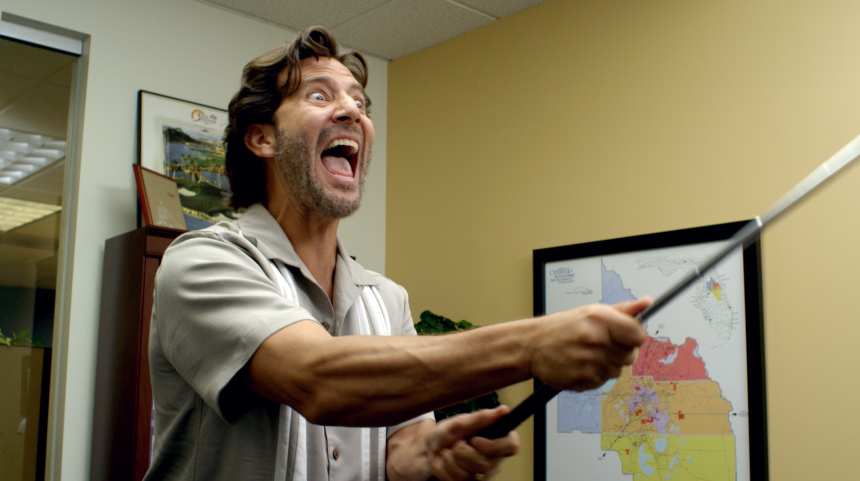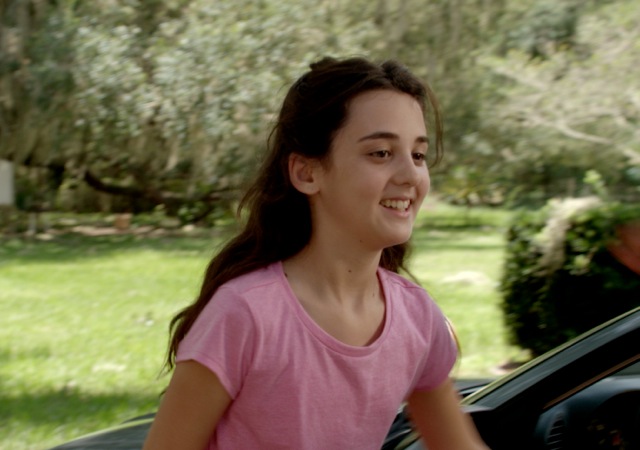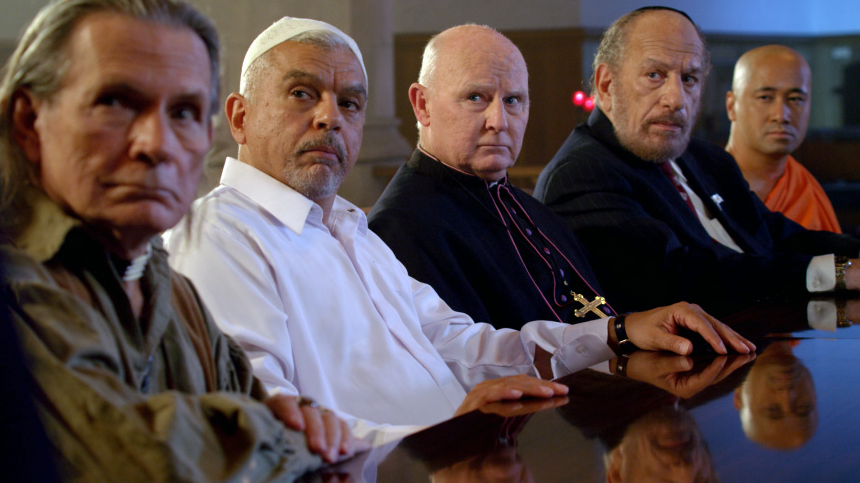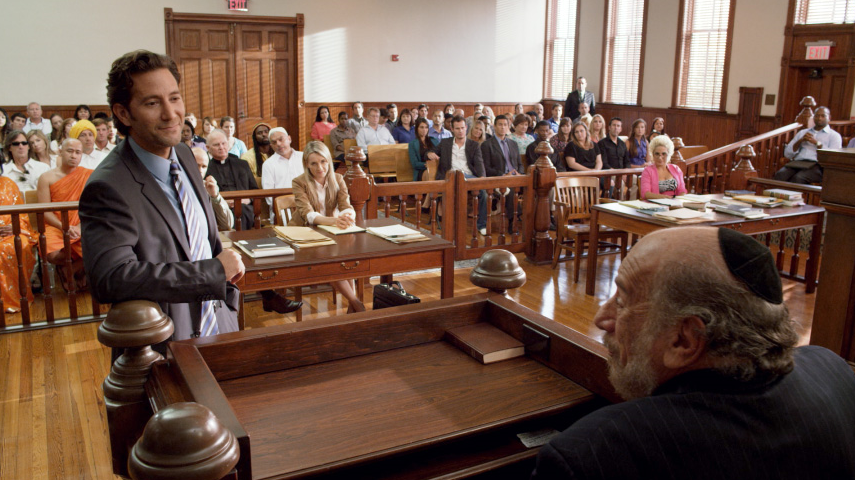Section Introduction
Section 1: CHARACTER IDENTIFICATION / STORY ALIGNMENTCHARACTER IDENTIFICATION & STORY ALIGNMENT
It often seems that the church spends a lot of time trying to get people to be the same: teaching the same beliefs, worshiping in the same way and form, encouraging the same approach and same answers to difficult issues, celebrating the same traditions. There are many good reasons and some very natural dynamics behind that. However, the reality of our spiritual lives is that we each encounter God and understand our relationship with God differently. How could it be any other way? Our daily lives are different. Our families operate differently when it comes to anger, affirmation, discipline, and roles. Even identical siblings are different – you can’t simply exchange one for the other.
So it shouldn’t surprise us that the people in the movie respond differently as they face the challenge of understanding God’s role in their lives. It shouldn’t surprise us either that the people of the Bible don’t approach issues the same way. As you explore the questions presented by the movie, it might be a good thing to reflect on some of the ways in which different people in the Bible responded in their own ways to their encounters and relationship with God, especially in difficult and perplexing situations.
- Read the stories of Joseph (in the Gospel of Matthew) and Mary (in the Gospel of Luke) as they each deal in their own way with the announcement of Jesus’s conception. What emotions do they each go through? How do they come to a resolution? Is it easier for one to move forward than the other? What was at stake for them in saying “yes” to God?
- Read the stories of Sarah (the mother of Isaac) and Hannah (the mother of Samuel). Both felt ignored by God. How did they express their frustration? Both later faced the loss of their only son. How did they process the risk and in whom did they place their trust?
- Job and his friends each work to understand, explain, and find someone to blame for Job’s horrible losses. What are their approaches? Are any of their answers helpful?
- David and Jesus each face betrayal, times of being questioned, rejected, and abandoned (even by God). What were their responses?
Take some time, too, to reflect on your own spiritual life and experience.
- Have you ever let anger be a part of your feelings toward God? How did you respond to that… with a sense of shame or guilt, just feeling wrong, or maybe feeling grateful that you can share anything with God?
- Try reading several different psalms (you find a lot of real, emotional honesty there). Can they be a resource for you as your relationship with God ebbs and flows?
Finally, take some time to consider how community can be a powerful aid in understanding your spiritual life and experience. Whether that community is just a few friends (as it was in the movie), a small group, a class, or a congregation, the opportunity to share our experiences is crucial to moving forward, growing faith, and facing the challenges of life.
Discussion Topics
Section 1: CHARACTER IDENTIFICATION / STORY ALIGNMENTDavid’s anger at God:
Do you think David is angry at God?
- Why do you think David sues God?
- Have you ever been angry with God?
- What do you do when you get angry?
- Do you think God gets angry at us?
If we experience bad things, is it OK to appeal to God for good?
What criteria do you use to label something as good or bad? Is this criteria the same as God’s? Why or why not?
What causes you to be angry? Should it?

Rachel’s shame of her past:
Do you think Rachel is ashamed of her past actions?
- Do you think Rachel feels God is disappointed or ashamed of her?
- How did Rachel respond to her feelings?
- Do you think Rachel’s response was a healthy response?
- Do you think God is ashamed of Rachel or her actions?
Do you think God expects perfection?
How do you respond to separation in an important relationship or some other failure?
How do you think God wants us to feel about ourselves, our life and others’ lives?
How does Rachel’s response to her shame impact her relationship with God and others?

Gina’s relationship with God:
Do you think Gina feels close or separated from God?
- How do you think Gina feels about God when she says:
“You know, I was thinking about what you said – about me maybe trying to do something else?”
- When does God feel far away?
- When does God feel real or like a real possibility?
- How do you imagine Gina’s relationship with God could evolve after the film is over?
Is Gina’s work construed to be acceptable to society or Karl?
What does Karl hope to achieve by exposing Gina?
Can a good person do bad things?
Does Gina achieve freedom from her past? How; what changed?

Lucy’s relationship with God:
Do you think Lucy feels close or separated from God?
- How do you think Lucy feels about God when she says:
“He’s always there, whether you believe in him or not.”?
- When do you feel close to God?
- Does God respond to you?
What is faith?
Do you share Lucy’s confidence in God’s existence, or are you more like David?
How has your faith transitioned during your lifetime?
How does knowledge about God and theology effect your faith?
How could you improve your knowledge about God? How would additional knowledge about God affect your life? What would you like to learn?

How God was portrayed in the film:
How did God work in the story?
- What was something new about God that you did not think about before you saw the film?
- What about God in the film would you like to know more about?
- What do you think is the core message that the film maker would like you to know about God?
- Has the film encouraged you to be more inquisitive or active in your faith journey?
Who is God; how does God describe God? By analogy, what is God like to you?
Do you think God knows what it is like to feel pain, rejection, or mockery?
What is it like to live a life in relationship with God? Without God?
As part of creation, do you have an invitation to do God’s work or make good things happen in the world?
What was David’s ultimate question? What is your ultimate question?

David and Rachel’s similarities and differences:
Does David and Rachel have similarities in their relationship or feelings about God?
How are they different?
- Do you think David’s behavior is rational or plausible in real life?
- Do you think Rachel’s life experience is realistic?
Do David and Rachel suffer pain and separation? If so, what kind? How do you deal with times you experience pain or separation?
Why do you think David responded the way he did?
Why do you think Rachel responded the way she did?
If something bad or unfair happens to you, how do you usually respond? Is it a healthy response, why or why not?

Who in the story do you relate to the most?
What character in the film are you most similar to at this time in your life?
- What character attributes do you most recognize in yourself? Explain.
- What other characters in the story demonstrate this same attribute, but deal with it in a different way?
- Does a character in the film inspire you to act in a different way now than how you have acted in the past?
Write a personal faith development action point that you would like to accomplish this week.





